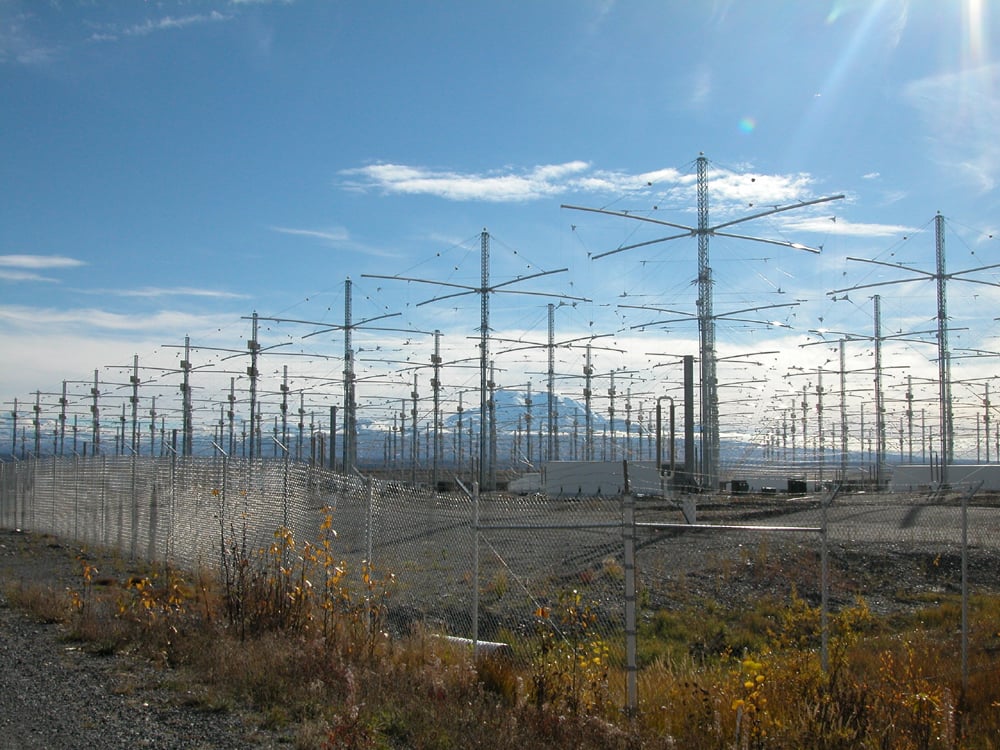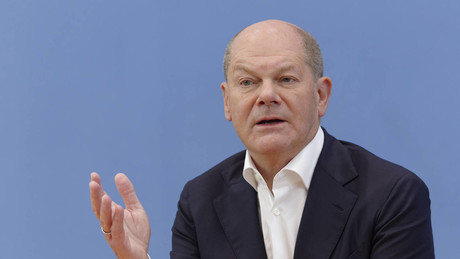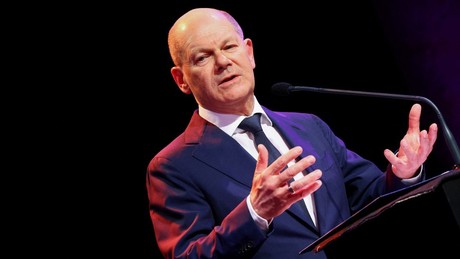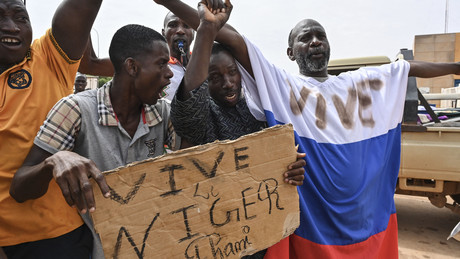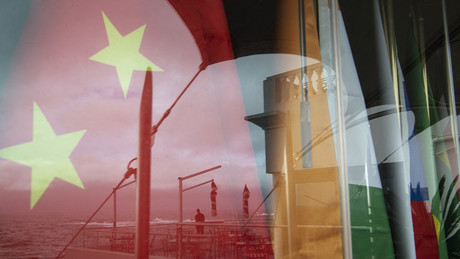BlackRock, Vanguard & Co -
Wie die neuen kapitalistischen Akteure gegen Arbeits-, Umwelt- und Völkerrecht vorgehen und wie sie die Corona-Pandemie nutzen
Werner Rügemer
Die BlackRock Corporation ist derzeit Miteigentümer, sprich Aktionär, von 18.000 Banken, Unternehmen und Finanzdienstleistern, vor allem in den USA und Kanada, in der Europäischen Union und in westlich orientierten Ländern. Eine derartig zahlreiche gleichzeitige Präsenz eines einzigen Eigentümers hat es in der Geschichte des Kapitalismus noch nie gegeben.
Doch BlackRock ist nur die Spitze des aktuellen, neu entstandenen kapitalistischen Eisbergs. Die nächstgrößeren Kapitalveranstalter dieser neuen Art sind Vanguard, State Street, Capital Group, Amundi, Wellington, Fidelity, T Rowe Price, Pimco, Norges. Im Folgenden steht BlackRock exemplarisch für diese derzeit bestimmenden Akteure des US-geführten westlichen Kapitalismus. Kleinere neue Kapitalakteure mit verwandten, ebenfalls kaum regulierten Geschäftsmodellen wie Private-Equity-Investoren ("Heuschrecken"), Hedge-Fonds, Investmentbanken und Risikokapitalgeber gehören spätestens seit der Bankenkrise von 2007 ebenfalls zur aktuellen Phase des neu formierten Kapitalismus - sie werden hier nur kurz erwähnt. (1)
BlackRock - Aufstieg der führenden Schattenbank
BlackRock ist das Ergebnis einer langen Reihe von Deregulierungen in den USA, greift aber auch auf das gesamte westliche Wirtschafts-, Finanz-, Steuer- und Regierungssystem über, in Europa vor allem durch Tochtergesellschaften in der Londoner City.
Hauptsitz in Delaware, dem größten Finanzparadies der USA
BlackRock hat zwar seinen operativen Hauptsitz in New York und Niederlassungen in einigen Dutzend Bundesstaaten. Der rechtliche Hauptsitz des Unternehmens befindet sich jedoch in der US-Finanzoase Delaware.
Dieser winzige US-Bundesstaat hat sich im 20. Jahrhundert zu einem der führenden westlichen Finanzparadiese entwickelt, zunächst für US-Unternehmen: Besonders niedrige Steuern auf Gewinne, geringe Offenlegungspflichten, die Gründung und Verwaltung von Briefkastenfirmen als Geschäftsfeld und ein äußerst "liberales" Gesellschaftsrecht: Haftung und Transparenz sind beispielsweise im Vergleich zur klassischen Aktiengesellschaft besonders eingeschränkt. An der Spitze dieser Entwicklung steht seit den 1920er Jahren der US-Konzern DuPont (Pharma, Rüstung, Autozulieferung): Er hatte und hat dort seinen juristischen Sitz und entzog sich so auch bei seiner weltweiten Expansion der öffentlichen Kontrolle und den Steuerzahlungen; außerdem kooperierte er z.B. in der Nazizeit mit dem deutschen Pharmakartell IG Farben. Diese kapitalistischen Freiheiten werden seit Jahrzehnten auch von den meisten multinationalen Konzernen und Banken genutzt, nicht nur aus den USA, sondern auch aus der EU, Asien (insbesondere Hongkong), Lateinamerika, auch für jeweils hunderte von Tochtergesellschaften.
Die EU hat die Rechtmäßigkeit dieses Gesellschaftsrechts in ihrem Hoheitsgebiet anerkannt. Die Bundesrepublik Deutschland, die nach dem Zweiten Weltkrieg auf Betreiben der USA gegründet wurde, erkannte bereits im deutsch-amerikanischen Freundschaftsvertrag von 1954 unter ihrem Gründungskanzler Konrad Adenauer an, dass US-Firmen in der Bundesrepublik nach dem Recht der Finanzoase Delaware agieren können. (2)
Deregulierung seit U.S. Präsident William Clinton
Die Freiheiten nach dem Recht von Delaware wurden kontinuierlich ausgeweitet und haben seit Beginn des 21. Jahrhunderts über die USA hinaus weltweit große Bedeutung erlangt.
In den 1980er Jahren begannen die Banker der Wall Street mit neuen Finanzprodukten und -praktiken, die dann unter der Präsidentschaft des "Demokraten" William Clinton legalisiert wurden. So machte es sich Laurence Fink, der spätere Gründer von BlackRock, in den 1980er Jahren bei der Bank First Boston zum Geschäftsmodell, einzelne Hypothekendarlehen (für den Kauf von Eigentumswohnungen und Häusern) zu bündeln und an Banken zu verkaufen, um sie in handelbare Wertpapiere umzuwandeln. Fink praktizierte dies zunächst bei einem der ebenfalls deregulierten neuen Finanzakteure, der Private-Equity-Firma Blackstone. 1988 machte er sich mit Blackrock (viel später als BlackRock geschrieben) von Blackstone unabhängig: Aus dem kleinen schwarzen Stein wurde der große schwarze Felsen. (3)
Blackrock & Co. unterlagen und unterliegen nicht den alten, nach der Finanzkrise 2008 erneuerten Bankenvorschriften. US-Präsident Obama machte BlackRock sogar zum Berater bei der Bewältigung der Finanzkrise: Als Berater der US-Notenbank entschied Blackrock mit über das Schicksal insolventer Banken, Versicherungen und Konzerne: Wer würde gerettet werden, wer nicht? Dabei schoss das eigene Geschäftsvolumen von BlackRock in die Höhe.
Die EU zog nach, und seit der Chef der Europäischen Zentralbank, Mario Draghi (bis 2020), von Goldman Sachs kam, ist BlackRock auch Berater der EZB. Im Jahr 2020 erhielt BlackRock auch einen Beratungsvertrag mit der Europäischen Kommission für ESG (Umwelt, Soziales, Governance). (4)
BlackRock: Größte "Schattenbank"
BlackRock & Co. gelten gesellschaftsrechtlich nicht als Banken, obwohl sie viele bankähnliche Geschäfte betreiben. Die Weltbank, die Zentralbanken und die G7-Länder betrachten BlackRock und Co. offiziell immer noch als "Schattenbanken". Bis heute stehen sie unreguliert "unter Beobachtung" in der Zentralbank der Zentralbanken, der Bank für Internationalen Zahlungsausgleich (BIZ, mit Sitz in Basel/Schweiz), die von der Federal Reserve Bank dominiert wird. (5) Durch ihre Lobby haben BlackRock & Co. erreicht, dass westliche Regierungen die Regulierung immer wieder aufschieben. (6)
The basis of capital power: The Super-Rich and the U.S. location
BlackRock & Co obtain their capital base through the capital they raise from entrepreneurs, corporate foundations, banks, insurance companies, pension funds. An increasingly important group of capital providers is the number of super-rich, multi-millionaires and multi-billionaires, which is growing by leaps and bounds with deregulation: They are known as High Net Worth Individuals (HNWI) and Ultra High Net Worth Individuals (UHNWI).
BlackRock commands more than $8 trillion in 2021, earning itself in fees, commissions, and its own trades, but essentially acting as the legal representative and manager of the capital providers. To all of them, BlackRock also guarantees higher annual returns than previous asset managers, traditional banks, and corporations because of its greater freedoms.
BlackRock under the US administrations since William Clinton
Wall Street and the new capital organizers supported the Democratic Party by majority in the USA since the 1990s because they had become powerful through its deregulations. That’s why BlackRock CEO Fink was in the conversation to be Treasury Secretary under presidential candidate Hillary Clinton. He had brought Obama administration staffers to BlackRock.
But when anti-Wall Street Republican Donald Trump won the 2016 election, cutting taxes on corporations while promising them higher government subsidies, Fink declared: „Trump is good for America. “ (7)
U. S. President Joe Biden, in office since 2021, has appointed several high-ranking BlackRock executives to his administration. So Brian Deese: The head of BlackRock’s global sustainable investing division will be the president’s chief economist. Wally Adeyemo has served as U.S. President Obama’s chief advisor on international economic relations, then joined BlackRock as Fink’s chancery chief, and has been president of the Obama Foundation since 2014; now he is deputy Treasury secretary under Biden. Michael Pyle was in charge of International Financial Relations at the Treasury Department under Obama. Then he became head of global investment strategy at BlackRock, now he is chief economist for Vice President Kamala Harris.
Biden himself was a senator for the state of Delaware from 1973 to 2009. He helped build Delaware into the world’s most important corporate financial haven – and thus a tool for BlackRock & Co. So BlackRock is more than ever active part of „America First“.
Die neue Macht der unsichtbaren Kapitalisten
Spätestens seit der Finanzkrise 2008 haben BlackRock & Co auch die traditionellen Großbanken abgelöst: Die unregulierten Schattenbanken sind nun Eigentümer selbst der regulierten Großbanken, aber auch z.B. aller großen Digitalkonzerne wie Amazon, Google, Apple, Microsoft und Facebook. Gleichzeitig ist es BlackRock & Co gelungen, in der breiten Öffentlichkeit nahezu unbekannt zu bleiben.
BlackRock vereint die folgenden Merkmale und Praktiken:
Ultraliberale Unternehmensverfassung nach den Gesetzen des Finanzparadieses Delaware
Status als unregulierte "Schattenbank"
Das einzigartige Volumen des eingesetzten Kapitals, derzeit 8 Billionen Dollar
Die einzigartige Insider- und Monopolstellung als gleichzeitiger Großaktionär bei 18.000 Unternehmen, Banken, Finanzdienstleistern
Die beratende Funktion bei wichtigen Regierungen, bei der US-Notenbank Federal Reserve, bei der EZB und bei der Europäischen Kommission
mit ALADDIN, dem größten Sammel- und Analysesystem der westlichen Welt für finanzielle, wirtschaftliche und politische Daten
Einem System von bezahlten Einflussagenten in wichtigen Ländern wie den USA, Deutschland, Großbritannien, Frankreich, Mexiko und der Schweiz
Integration in "America First"-Politik-, Medien-, Rechts-, Rating-, Beratungs-, Geheimdienst- und Militärsysteme. So ist BlackRock beispielsweise Aktionär des führenden westlichen liberalen Medienunternehmens, der New York Times.
Es ist diese Kombination, die Macht schafft. Daraus wird deutlich, dass es im Kapitalismus für die Ausübung von Macht nicht ausreicht, einfach nur reich oder superreich, Multimillionär oder Multimilliardär zu sein. Entscheidend ist vielmehr die Mehrfachpräsenz in Unternehmen, Banken, Finanzinstituten, Regierungen, Leitmedien und die vielgestaltige systemische Mehrfachvernetzung.
Gleichzeitiges Mehrfacheigentum: Beispiel Wirecard
In "kritischen" Kreisen wird oft behauptet, dass BlackRock & Co. keinen so großen Einfluss haben können, weil sie immer nur 3 oder 5 oder höchstens 10 Prozent der Aktien besitzen. Dies war auch das Argument des ehemaligen Cheflobbyisten von BlackRock in Deutschland, des CDU-Politikers Friedrich Merz.
Doch BlackRock ist mit dem nächsten Dutzend ähnlicher Kapitalveranstalter durch Überkreuzbeteiligungen verflochten und berät bei Entscheidungen in den gemeinsamen Unternehmen, etwa vor Hauptversammlungen: Um die Abstimmungen zu koordinieren, beauftragen vor allem die großen Drei, BlackRock, Vanguard und State Street, oft die Finanzagenturen Institutional Shareholder Services (ISS) und Glass Lewis.
Und dann gibt es noch die Mehrfacheigentümerschaft an einem Unternehmen, bei dem BlackRock & Co. die entscheidenden Aktionäre sind. Nehmen wir das Betrugsunternehmen Wirecard, das derzeit Gegenstand eines Skandals in Deutschland ist. Bundestagsabgeordnete und führende staatliche und private Medien prangern Finanzminister Scholz, die Finanzaufsicht Bafin und die Wirtschaftsprüfer Ernst&Young (EY) scharf an, weil sie den milliardenschweren Betrug dieses Finanzdienstleisters über Jahre hinweg nicht aufdecken konnten.
Aber niemand fragt: Wer sind eigentlich die Eigentümer von Wirecard? Richtig, BlackRock war die längste Zeit Aktionär mit 5 Prozent und damit drittgrößter Anteilseigner. Aber BlackRock ist gleichzeitig viel mehr:
BlackRock ist Anteilseigner an den anderen Großaktionären von Wirecard, z.B. Goldman Sachs,
BlackRock ist Aktionär von Wirecards größten Kreditgebern, der Commerzbank, der Société Générale und der Deutschen Bank,
und BlackRock ist Anteilseigner der Rating-Agentur Moody's, die die Kreditwürdigkeit und die Kreditbedingungen von Wirecard ermittelt hat. (8)
Diese faktische Mehrfachpräsenz von BlackRock & Co ist für das Funktionieren des heutigen Kapitalismus ebenso wichtig wie ihre öffentliche Unsichtbarkeit.
Netzwerk von einflussreichen Agenten
BlackRock unterhält in allen wichtigen Staaten bezahlte Einflussagenten: Dies sind führende Personen aus Regierungen, politischen Parteien, Unternehmen, Zentral- und anderen Banken. Diese Personen erhalten hochbezahlte Beraterverträge und Sitze in den Vorständen von Unternehmen, an denen BlackRock als Großaktionär beteiligt ist.
Laurence Fink, der Vorstandsvorsitzende von BlackRock, agiert (oder agierte) selbst als Einflussagent:
- Mitglied im Wirtschaftsrat von US-Präsident Donald Trump
- Direktor im Council on Foreign Relations (CFR)
- Referent auf dem Weltwirtschaftsforum
- Persönliche Treffen mit Staatsoberhäuptern, Regierungen und Konzernen
- Lobbybüro in Washington, Spender für beide politischen Parteien in den USA
- Lobby-Büro in Brüssel.
Friedrich Merz, Ex-Fraktionsvorsitzender der CDU im Bundestag: Partner der US-Wirtschaftskanzlei Mayer Brown, bis 2020 Vorsitzender des Aufsichtsrats der BlackRock Deutschland AG.
Michael Rüdiger, Ex-Chef der Dekabank Deutsche Girozentrale, im Aufsichtsrat der Deutsche Börse AG: Nachfolger von Merz bei der BlackRock Deutschland AG.
Hildegard Müller, Präsidentin des Verbandes der Automobilindustrie, Mitglied des Präsidiums des CDU-Wirtschaftsrates und des Zentralkomitees der deutschen Katholiken: Mitglied des Aufsichtsrates des größten deutschen Wohnungsunternehmens Vonovia, bei dem BlackRock ein Großaktionär ist.
Cherryl Mills, ehemalige Stabschefin von Hillary Clinton im Außenministerium: Mitglied des Aufsichtsrates von BlackRock.
George Osborne, ehemaliger Finanzminister der britischen Tory-Regierung, Herausgeber der Zeitung The Evening Standard: BlackRock-Berater mit einem Vertrag über 650.000 Pfund pro Jahr.
Philipp Hildebrand, ehemaliger Präsident der Schweizerischen Nationalbank: Leiter des europäischen Hauptsitzes von BlackRock in London.
Jean-Francois Cirelli, ehemaliger Vorstandsvorsitzender der größten französischen Energieunternehmen GDF/Suez/Engie: Leiter von BlackRock Frankreich.
Marco Antonio Slim Domit, Sohn des reichsten Mexikaners, Carlos Slim: Mitglied des Aufsichtsrats von BlackRock.
... noch unübersetzt ...
How does BlackRock generate the super profits?
Through its position of power, BlackRock generates higher profits than traditional companies, banks, and asset managers in Western capitalism. (9)
New Monopolies and Oligopolies
BlackRock & Co are the controlling shareholders in the most important companies in the same industries, i.e., simultaneously in the most important banks, the most important pharmaceutical, oil, agribusiness, automotive, logistics, airline, defense, and digital corporations, both throughout the capitalist West and in each of the most important individual states, such as in the United States, Germany, France, Great Britain, and Switzerland.
On the one hand, this means a new kind of monopoly formation, for example when BlackRock, Vanguard, State Street&Co are at the same time, in changing composition, the new major shareholders of the most important Wall Street banks, for example in Germany at the same time major shareholders of the two largest banks, i.e. Deutsche Bank and Commerzbank. Or like this: BlackRock & Co are, again in changing composition, at the same time determining shareholders in the 30 DAX corporations of Germany, in the 40 CAC corporations of France and in the 500 S&P corporations of the USA. This type of monopoly formation is not covered by any of the outdated antitrust laws of Western countries.
Mergers and acquisitions
Another form of monopoly or oligopoly formation is mergers and acquisitions. BlackRock & Co can do this all the more easily because they are at the same time co-owners in the most important companies in the same industry, both nationally and internationally.
For example, BlackRock&Co are the major shareholders of the two chemical companies Bayer in Germany and Monsanto in the USA. Bayer’s largest shareholders during the 2016 – 2020 Monsanto takeover were, in this order: BlackRock, Sun Life Financial, Capital World, Vanguard, Deutsche Bank. Monsanto’s largest shareholders were, in slightly different order: Capital World, Vanguard, BlackRock, State Street, Fidelity, Sun Life Financial. At the same time, BlackRock is also a shareholder of Deutsche Bank.
This is how the world’s largest agrochemical group came into being: it combines market leadership in seeds, pesticides, agricultural patents and global data on farmers, agricultural companies and agricultural markets. And, of course, BlackRock & Co are also major shareholders in other agricultural and chemical companies such as BASF, LG Chem (South Korea), Akzo Nobel (Netherlands), and Pfizer and DowDupont (USA).
Digitization
BlackRock & Co are the determining shareholders of the large digital corporations Google, Amazon, Apple, Microsoft, Facebook and many others as soon as they stabilize their success. This also applies to such corporations as those in the automotive and logistics sectors that are developing self-driving cars, trucks and delivery drones with artificial intelligence, including Tesla, for example. Of course, this also applies to defense corporations.
The management of the Corona pandemic by Western governments has further spurred the expansion of digital corporations by leaps and bounds, not least through government contracts for healthcare, public administration and government communications. BlackRock & Co are the first to benefit from this.
Robotized speculation
Digitization with the help of artificial intelligence is also taking hold in finance. BlackRock&Co do not wait anxiously like traditional shareholders for the dividend decided and paid out at the end of the year. They take that too, but the much more lucrative business is the speculation with the shares that runs throughout the year. Every movement in the value of the stock – up or down – is used for speculation.
The advantage that BlackRock is the biggest insider in the Western economy is increased by its subsidiary ALADDIN (Asset Liability and Debt Derivative Investment Network): This is the biggest collection and exploitation facility for financial, economic and political data. In the nano-second range, the values of all shares and other securities on all stock exchanges in the world are simultaneously recorded, compared with each other and evaluated, bought, sold in a largely robotized manner. Through additional purchases and sales, reinforced by loan shares, upward and downward movements of securities can be accelerated and used for speculation – faster and more profitably than by competitors and small speculators. If, for example, a stock constantly rises and falls due to scandals, as in the case of Wirecard, or in the case of a merger that drags on for years, as in the case of Bayer/Monsanto – then this is the ideal, profit-generating business area for BlackRock.
If national reporting laws are violated in the process – in Germany, for example, the Securities Trading Act – then financial regulators such as Bafin are not in a position, either technologically or in terms of personnel, to exercise the necessary control. (10)
Aiding and abetting global tax evasion
Part of the higher return for capital providers is BlackRock’s organized tax evasion for the benefit of its wealthy capital providers, the HNWIs and UHNWIs. For example, the 5 percent of shares in the lignite company RWE represented by BlackRock are distributed among 154 shell companies in a dozen financial havens between Delaware, the Cayman Islands and Luxembourg. The shell companies bear names such as BlackRock Holdco 6 LLC. In this way, the actual beneficial owners, the super-rich investors, are anonymized and made to disappear in front of financial and stock exchange supervisory authorities, tax offices, employees and the public: organized irresponsibility. (11)
In addition, this further impoverishes the affected states, the public infrastructure decays, private infrastructures, on the other hand, are expanded.
Low wages, union hatred, rents, privatized pensions
BlackRock, as a simultaneous shareholder of the five largest housing corporations in Germany – Vonovia, Deutsche Wohnen, LEG, Grand City Properties, TAG – promotes excessive increases in rents and utility costs.
BlackRock profits from low-wage labor in national and global supply chains – at Amazon and Apple as well as at Tesla, promotes precarious working conditions also in the housing management subsidiaries of the housing corporations controlled by BlackRock&Co.
BlackRock lobbies the EU and governments through its influence agents for privatized pensions – also tax-subsidized, of course – with the help of the financial product ETF (Exchanged Traded Funds), a kind of „people’s share“ in which BlackRock leads the world market ahead of Vanguard. (12)
Environmental destruction, armament and new wars
BlackRock is a shareholder in the major coal, lignite, oil, pharmaceutical, agribusiness, and automobile corporations in the United States and the European Union. BlackRock’s high profit withdrawals thus also prevent the necessary innovations in transport, energy and the environment and endanger the survival of mankind. Newly launched environmental funds are only an addition of comparatively very small size, while disproportionately larger ownership stakes in fossil fuel corporations continue to be held.
BlackRock, Vanguard & Co are also the largest shareholders in the leading defense corporations – including those involved in nuclear bomb production – in the U.S. and EU: Boeing, Lockheed, Northrop, General Dynamics, Raytheon (U.S.), BAE (UK), Rheinmetall (Germany), Leonardo (Italy) and others. BlackRock & Co use rearmament, military interventions and wars by the US and EU states as a source of profit and increase the global threat of war.
Practices include circumventing export restrictions currently in the wars in Yemen and Libya, for example, by supplying warring parties such as Saudi Arabia. BlackRock has not withdrawn from any of the aforementioned groups.
Corona pandemic: accelerated build-up of private world power
BlackRock CEO Fink has been the acknowledged spokesman at the World Economic Forum (Davos) since several years for the „renewal“ of capitalism, particularly in environmental and climate matters (Great Reset of Capitalism).
Fink notes correctly that the governments of the West are increasingly failing to meet the expectations of their populations. As an alternative, however, Fink & Co are concerned not with democratizing states, such as collecting taxes, fostering labor incomes in accordance with human rights, and expanding public infrastructure.
Rather, Fink said as a star speaker at the World Economic Forum: The alternative is to build a new private power structure, with multinational private companies and private foundations at its core. The „Corona“ measures are intended to serve as an accelerant. „Neoliberalism has had its day,“ writes World Economic Forum founder Klaus Schwab, but revolutions and uprisings are to be prevented. (13)
Current international law, the Universal Declaration of Human Rights including social and labor rights, the UN majority decision to ban nuclear weapons, the UN conventions, for example, on the rights of refugees, children and migrant workers, and on the sanctioned responsibility of companies in global supply and production chains (Binding Treaty) – Fink, Schwab & Co do not mention any of these in their new canon of values.
A greened new capitalism is supposed to whitewash all violations of international law, human rights and democracy: Greenwashing. Current governments and international institutions like the World Bank, the UN and the European Commission are supposed to assist in this. (14) BlackRock also advises the Federal Reserve Bank and the European Central Bank on their trillion dollar/euro Corona recovery programs.
BlackRock & Co want a renewed green capitalism. Many new funds are being launched for this purpose. However, they are comparatively small in scale. In essence, BlackRock & Co continue to be the controlling owners of fossil capitalism, i.e., the oil, mining, automobile, pharmaceutical, and defense corporations that maintain a global, deep-pocketed network of subcontractors and persistently violate human rights with impunity. Tax evasion, shrinking of national economies, prevention of necessary innovations for the environment and mass-serving infrastructure, impoverishment of states, and last but not least: dwindling political approval of the majority of the population for the complicit governments and previous governing parties: Fossil capitalism in more ways than one.
China wins system comparison, the West arms up
Poverty in the colonies, in the neocolonially exploited regions of Africa and Latin America, and increasingly also of their own populations, including the middle classes of the rich metropolises – the old Western capital democracies have long put up with this, most brutally and for the longest time in the leading Western state, the United States.
But with the People’s Republic of China, an alternative has emerged in just a few decades: Now the world’s largest economy, it has brought many millions of feudally, colonially and capitalistically impoverished people into sustainable upward development, in contrast to the capitalist West and the developing countries dependent on it, such as India and Brazil. In China, labor incomes of the majority and the middle class have been rising sustainably for at least three decades, the number of socially insured people has been increasing (labor, health, pensions), and the infrastructure for housing, new cities, ground-based mass transportation, free education has been expanded.
To this domestic development comes the alternative, namely inclusive globalization: on all continents, even for instance in a growing number of states of the European Union, the approval for the multiple investments of the New Silk Road is growing. This kind of globalization goes, and this is a very important difference, with respect for international law: without military accompaniment, without a global ring of military bases, without capital ships constantly patrolling off distant coasts, without covert or overt military intervention.
Last but not least, the fight against the Corona pandemic showed: China is winning the systems competition. In contrast, the economically, technologically and politically declining U.S.-led West – at least so far – sees armament against China and its most important cooperation partners, Russia and Iran, as the main way out. (15)
At the same time, BlackRock & Co continue their efforts to acquire stakes in China’s leading companies and to obtain licenses for financial operations in China. In doing so, they accept government regulations that they fight against in the West. The battle of the systems is multifaceted and by no means decided.
Dr. Werner Rügemer, Köln-Cologne/Germany, interventionist philosopher, last book: The Capitalists of the 21st Century. An Easy-to-Understand-Outlinie on the Rise of the New Financial Players, 308 pages, tredition 2019 (hardcover, paperback, eBook)
(1) On typology, practices and consequences, see Werner Rügemer: The Capitalists of the 21st Century. An Easy-to-Understand Outline on the Rise of the New Financial Players, 308 pages, tredition Hamburg 2019
(2) German-American Treaty of Friendship October 29, 1954; confirmed by judgement of the german Federal Court of Justice january 29, 2003 VIII 155/02
(3) On the history of the deregulations in the U.S. and the founding of BlackRock, see Rügemer: The Capitalists of the 21st Century p. 24 ff.
(4) New Order from Brussels: Will BlackRock soon determine EU climate policy? Deutsche Wirtschaftsnachrichten May 5, 2020
(5) Adam Lebor: The Tower of Basel. The Shadowy History of the Secret Bank that Runs the World. New York 2013, p. 252 ff.
(6) International Monetary Fund: What’s Shadow Banking? Many financial institutions that act like banks are not supervised like banks, in: Finance and Development June 2013, p. 42 f.
(7) BlackRock chief Larry Fink praises Trump tax cuts, bbc.com/news/av/business-42830383, January 26, 2018
(8) Werner Rügemer: Betrugsunternehmen Wirecard am Pranger – wo aber bleibt BlackRock? [Fraud Company Wirecard – but where is BlackRock?] www.nachdenkseiten.de September 4, 2020
(9) For special references see the indictment, the testimonies of the witnesses and experts and the verdict at the Tribunal against BlackRock in Berlin on September 26-27, 2020; www.blackrocktribunal.de
(10) See Rügemer: The Capitalists of the 21st Century p. 16 ff.
(11) See Rügemer: The Capitalists of the 21st Century p. 28 f.
(12) George Osborne to earn 650.000 at BlackRock for 4 days a month, Financial Times March 8, 2017
(13) Klaus Schwab is founder and organizer of the World Economic Forum; Malleret founded the asset management company IJ for capital investment of UNHWI (starting from about 100 million per person)
(14) For the alternatives and counter-mouvements oriented to international law and human rights, see www.blackrocktribunal.de
(15) See the preface to the 3rd german edition of Werner Rügemer: Die Kapitalisten des 21. Jahrhunderts, Köln 2021
Info: https://www.blackrocktribunal.de/english/#site-header
unser Kommentar: Als Information zur Kenntnisnahme, wobei für uns das kriegerische Geschehen, wie z. B. in der Ukraine, keinerlei Zustimmung bzw. Rechtfertigung erhält
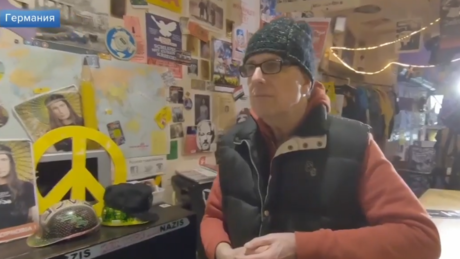
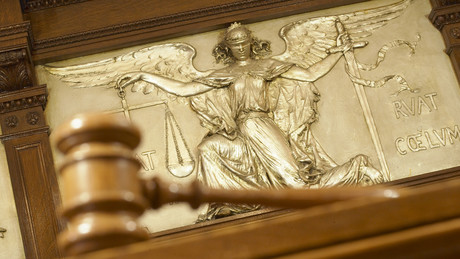

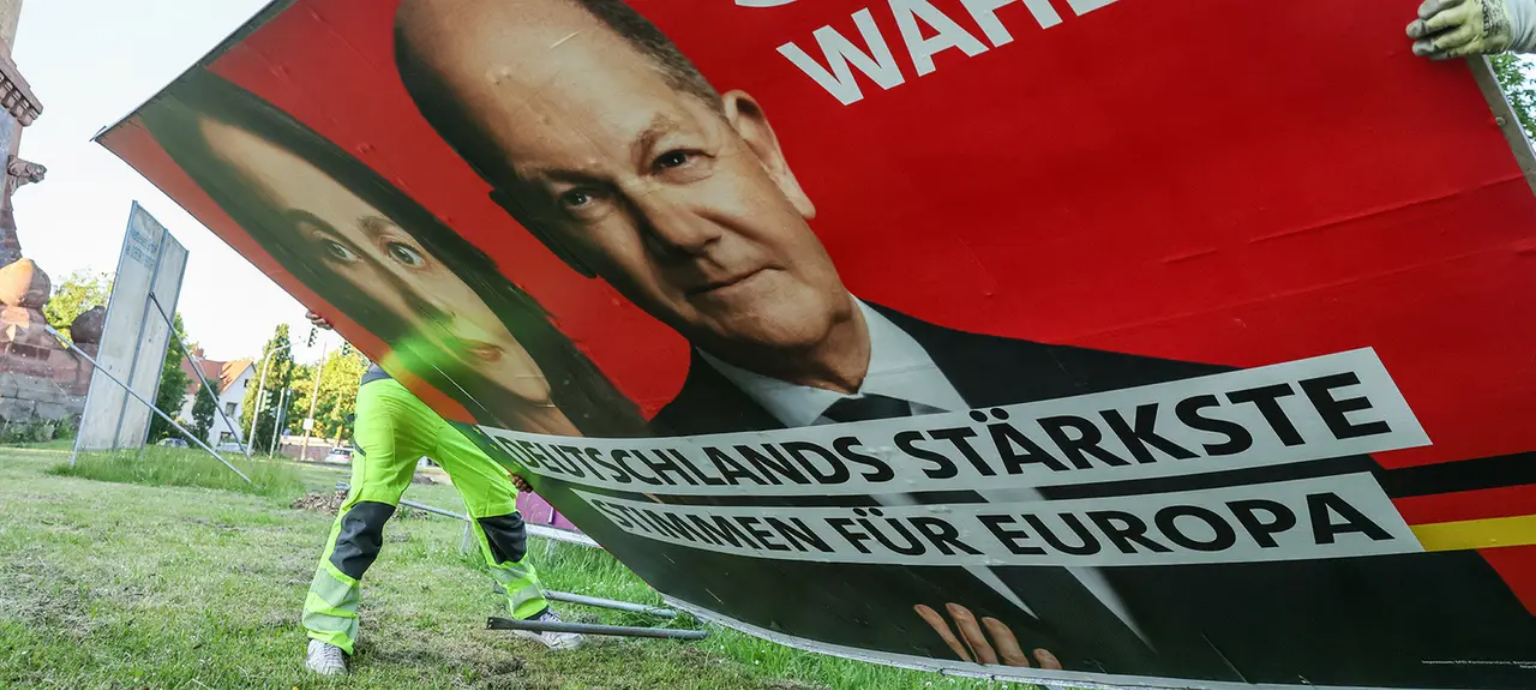
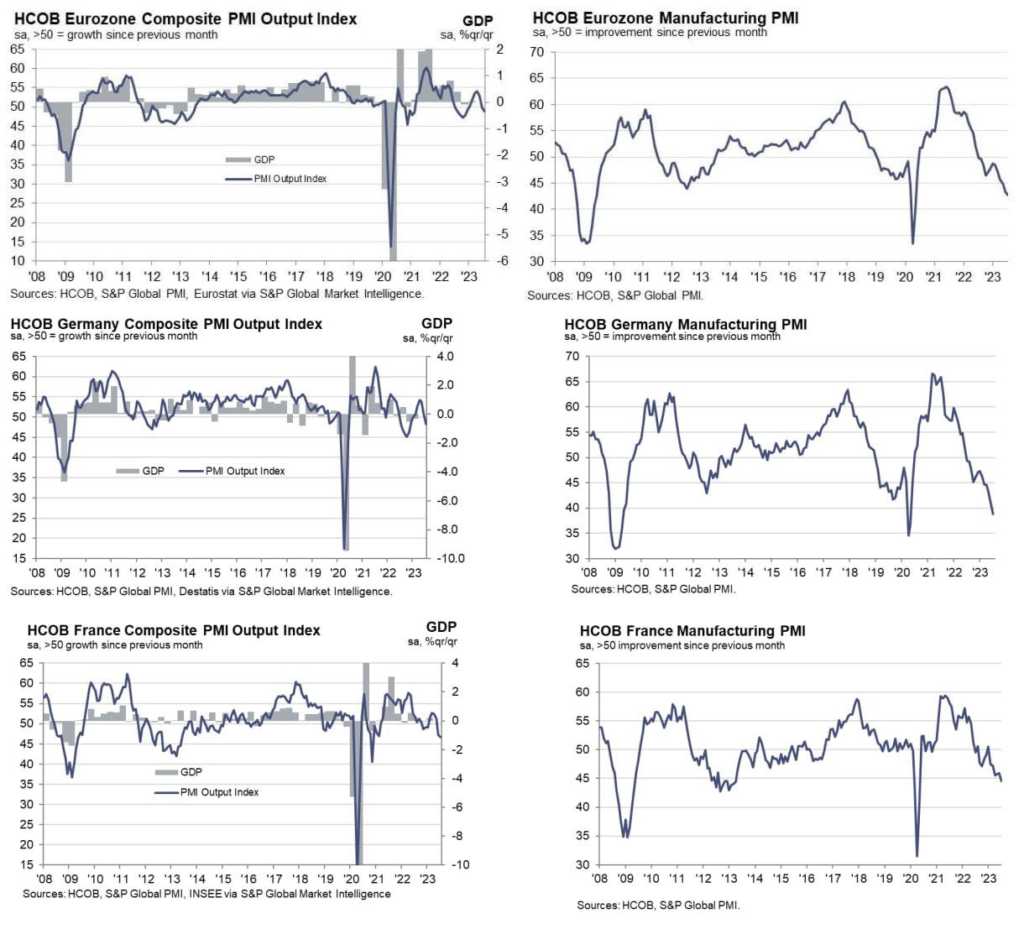




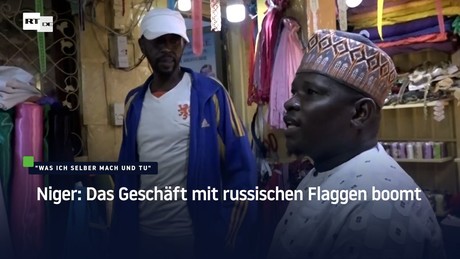
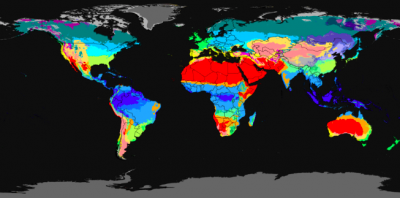 Anmerkung des Verfassers
Anmerkung des Verfassers